Back in January, we opened submissions for the second edition of the BFI Flare LGBT Filmmakers’ Mentorship, delivered in 2016 with BAFTA and supported by Creative Skillset. After a very successful pilot last year, where mentor relationships flourished and our filmmakers developed their careers further, the programme will again provide the selected emerging LGBT filmmakers the opportunity to be mentored by a senior figure from the film industry, to develop industry knowledge, professional connections, their passion for cinema and an overview of LGBT features entering the marketplace.
We were overwhelmed by the number of qualified applicants and by the quality of the applications we received, which demonstrated, for a second year in a row, the diversity and great talent of LGBT identified filmmakers in the UK. It was a true challenge to narrow this field – as we wanted to work with so many more of the talents who applied – but we are very pleased to announce that this year we’ve selected six extremely gifted filmmakers.
This year’s mentees – one producer, one writer, one documentary director-producer, and three writer-directors – represent a diverse group with cinematic interests across a wide spectrum.
Our excitement is enhanced by a great mentor group, which includes Iain Canning (Oscar-winning producer, The King’s Speech, 2010), Abi Morgan (BAFTA and Emmy-winning writer, Suffragette, 2015, The Iron Lady, 2011), Ben Roberts (Director, BFI Lottery Film Fund, who has supported films such as Pride, 2014, Under the Skin, 2013, High Rise, 2015, and The Duke of Burgundy, 2014), Desiree Akhavan (director, Appropriate Behaviour, 2014), Andrew Macdonald (BAFTA-winning producer, Ex Machina, 2015, 28 Days Later, 2002, Trainspotting, 1996) and Beadie Finzi (Foundation Director of BRITDOCS, documentary producer of Unknown White Male, 2005, and The Possibilities Are Endless, 2014, and director of Only When I Dance), who will provide invaluable guidance to our filmmakers.
Without further ado, meet the filmmakers who have been selected for this year’s BFI Flare LGBT Filmmakers’ Mentorship scheme.
Dionne Edwards, writer-director
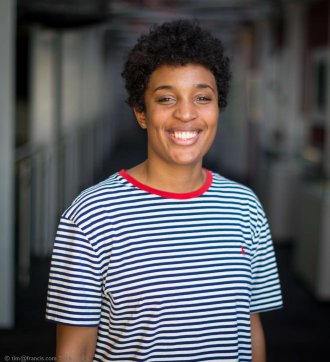
Dionne Edwards is a screenwriter and director. After studying film and TV production at the University of Westminster, she spent a year at Working Title Films on their esteemed Action Internship. She went on to assist agents at Linda Seifert Management, working with some of the UK’s best writers and directors. Dionne left in 2011 and formed Teng Teng Films with producer Georgia Goggin. They have made four shorts together, including ‘Got Got’, which was a finalist in Shooting People’s Film of the Month competition. Dionne’s 2014 short ‘Hi, Miss!’ has been invited to festivals worldwide, including BAFTA-qualifiers LSFF and Aesthetica, and it won the Audience Award at the East End Film Festival 2015. Her next short ‘We Love Moses’ is in pre-production and has been awarded funding by Film London, as part of their London Calling Plus scheme 2016.
Dionne on challenges for LGBT film and filmmakers
In my opinion, the biggest challenge an LGBT filmmaker can face is the pressure of depicting a community that is frequently misrepresented in the media. I face these challenges as a black queer woman and as a critical thinker. I sometimes worry about misrepresenting a character of colour, or a female character, or an LGBT character. You could argue that many straight white male storytellers, for example, have the freedom to depict a whole spectrum of characters, even the most despicable anti-heroes and make them three dimensional and memorable without the same kind of baggage. Queer filmmakers and minority filmmakers do not necessarily have that same freedom without worrying about how the characters will be received. Telling an honest, distinct and engaging story is difficult enough, and whilst it’s crucial for LGBT and minority filmmakers to move beyond stereotypes, we should aim to write engaging characters and narratives honestly and freely.
Dionne on an admired filmmaker
I personally think Martin Scorsese is a master storyteller and the greatest living director. As a filmmaker, I am interested in exploring the cinematic form and telling bold, vivid stories with visual excitement. Scorsese’s films do this masterfully, combining realistic characters and plotlines with expressionistic techniques. He is a second-generation Italian-American catholic male and his films revolve around themes of guilt, greed, machismo and the Madonna-whore complex. As a black queer woman, my experience couldn’t be more different and yet his films have still imprinted on me deeply. Although my experience is very different from the straight white experience that is so dominant in the mainstream, I still look to inform, delight and challenge the audience and tell stories that are personal. In doing so, I hope my films will have some longevity.
Dionne’s mentor: Desiree Akhavan
Joy Gharoro-Akpojotor, producer
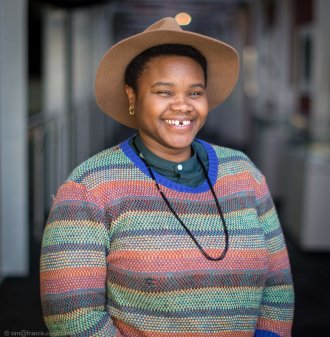
Joy Gharoro-Akpojotor is an award-winning producer, with experience in producing, production co-ordinating and line producing. Joy’s work reflects her cultural background, having grown up in Nigeria, Brunei and the UK. She seeks to tell socially conscious stories that allow people to think, exploring other alternatives where possible. She has produced a series of short films, including ‘In My Eyes’, with over 10 million YouTube views, and ‘Beyond Plain Sight’, which last year was nominated for the Best Short Film award at Raindajnce, and two indie feature films, ‘M.L.E’ and ‘White Colour Black’. Aside from producing, Joy holds an MA in creative writing in film, TV and plays, and has been awarded two grants for the arts from the Arts Council in order to develop plays in partnership with theatres such as Theatre Royal Stratford East. She closed Africa Writes Festival at The British Library in 2014 with her play ‘Sunday’, and will be closing it again in 2016 with her play ‘The Immigrant’.
Joy on challenges for LGBT film and filmmakers
Telling a compelling human story that doesn’t stereotype or pigeonhole what it means to be LGBT. I think that people get so caught up in sexuality that they forget to look at the story happening, and at times, as LGBT filmmakers, we don’t help the cause. We sometimes cater to the stereotypes as opposed to showcasing a story first, in which two people happen to be gay. I think this is one of the reasons why ‘Carol’ is so beautiful – it’s a film about two people who unexpectedly fall in love, and they just happen to be women. As an LGBT filmmaker, I was once told that I shouldn’t focus on LGBT stories – to be accepted I need to expand and tell other stories. For me, I tell stories that I love and have experienced regardless of my sexuality, but what I find is that as LGBT filmmakers we must leave our identity at the door in order to be accepted. If I say I’m gay there is an expectation of the type of work I make or should make; as a black woman who is gay, that expectation is doubled. There needs to be more diversity in LGBT films. As a young black Nigerian woman, I have spent most of my life watching lesbian films that have nothing to do with me. By that I mean films that do not understand my culture, nor my blackness, and therefore do not portray what it means to be a black lesbian woman living in London.
Joy on an admired filmmaker
I admire Christine Vachon because she has been able to produce accessible films that matter to a broad audience, such as Go Fish (1994), Boys Don’t Cry (1999), Carol (2015) – while staying semi-independent as well. I remember when I first wanted to get into producing but had no idea what I was doing, I read a bunch of books on how to become a producer but none of them really told me about the day-to-day life in terms of expectations. Then I read ‘A Killer Life’, and that was the first time I understood what I was getting into – to constantly have an open mind, to know that nothing will ever go according to plan, to have about five different options because you’ll constantly need them, my approach to people, and understanding the business side of things.
Joy’s mentor: Ben Roberts
Kayleigh Llewellyn, writer
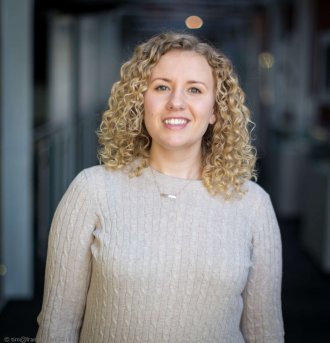
Kayleigh is currently writing for Casualty (BBC1), having previously written for Stella (Sky1). She and her writing partner, Matthew Barry, are developing several comedy series with Bad Wolf. They’ve also been commissioned to write a comedy pilot for BBC Comedy Production. She recently wrote and starred in her first short, Oh-Be-Joyful, winner of Best Comedy at LSFF. She is now developing a feature film, Something Changed. Additionally, she is writing and performing in comedy sketches for PYPO, developed by Stephanie Laing (producer and director of Veep). For radio, they have an original series in development with Radio 4. Kayleigh also writes on the award-winning sketch show, Here Be Dragons (BBC Radio Wales). Kayleigh and Matthew were the recipients of the BAFTA Rocliffe New Comedy Writing Forum 2012 with their script, Grey, which was optioned by Company Pictures and developed for BBC1. Alongside her writing, Kayleigh also performs improvised comedy.
Kayleigh on challenges for LGBT film and filmmakers
People assume that LGBT stories will just be about sex. And sometimes they are. I’ve seen a tonne of LGBT shorts lately that just focus on gay sex instead of character and story, the person beyond the act of sex. I’m excited by the films that go further (The Kids Are Alright, 2010, My Summer of Love, 2004, Carol (2015), Appropriate Behaviour, 2015). What about stories about the LGBT people who just work and have families and doubt themselves and struggle to convince people to have sex with them? I remember being so thrilled by an episode of Last Tango in Halifax when it opened on a lesbian couple kissing on the sofa, watching University Challenge and then one of them proposed. It was so moving and relatable. I’m not suggesting LGBT cinema should depict us all as basic bitches, but I like it when it explores all the universal themes that any human connects to: friendship, love, heartbreak, longing for acceptance. Also, the belief that LGBT cinema is arthouse, not multiplex. Or that being gay in general is something that takes place in Soho, not the suburbs. We need to prove that LGBT people are everyone, not other; that if a mass audience can relate to a story about a Jedi, or a man being attacked by a bear, they can relate to a story about a lesbian.
Kayleigh on an admired filmmaker
Jill Soloway. I became aware of her work in 2002 when I was 16 and obsessed with Six Feet Under. I loved her unorthodox route in to the industry. Early on, Jill says the intention of her work was, “inciting feminist revolution” and I believe she has, through her ability to marry drama and comedy together so perfectly and use it to push the boundaries of acceptable storytelling topics. She directs, writes, produces, show runs, she’s an activist, an author, and even occasionally cameos on screen. She is both an auteur and a collaborator. Jill also pays it forward, nurturing new talent. I think it’s so wonderful when people who have climbed the ladder, turn around and help the next generation up behind them. Not to mention the way she runs the Transparent writers room and crew – it’s unique and fantastic, and is producing one of the most meaningful shows of the last decade. But mostly, she is someone with a finely tuned ability to observe the ugly and the beautiful facets of humanity, and recreate them on screen. I often find myself wet-cheeked whilst watching her work. Not because I’m incredibly sad, or laughing so hard I’ve cried, but because I’m witnessing something that simply speaks to me. That is her skill.
Kayleigh’s mentor: Abi Morgan
Dean Loxton, writer-director
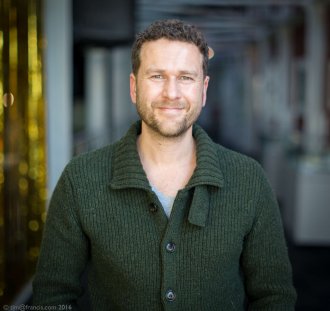
Dean studied acting at the Bristol Old Vic Theatre School. In 2011 he directed four ‘devised on the day’ improvised films, including ‘Metro 7 Bis’, which was shot in Paris. ‘Metro 7 Bis’ travelled to many festivals including Palm Springs Shortfest, Austin Film Festival and was shown on US TV. ‘White’, which he made in Los Angeles while attending Palm Springs Shortest, was seen by Paul Greengrass (Captain Philips, 2013) who said, “White featured great improvisation and really transported the viewer into the LA street world. Great authenticity and bite, and in a good way left me wanting more.” In 2012 he wrote and directed ‘Under’ with Keeley Forsyth (JK Rowling’s ‘The Casual Vacancy’) in the lead role and a cameo from Daisy Ridley (Star Wars Episode VII: The Force Awakens, 2015). ‘Under’ also went to Austin Film Festival, as well as Tehran International Short Film Festival, Odense Film Festival, Bristol Encounters and London Short Film Festival. His latest film ‘Dániel’ has a cast including Hilda Peter (Peter Strickland’s Katalin Varga, 2008) has shown at 18 festivals, was nominated for an Iris Prize and was one of the BFI’s ‘10 to try’ at the London Short Film Festival 2016. Dean recently attended the Berlinale Talent Campus 2016.
Dean on challenges for LGBT film and filmmakers
Being honest in your work, and not being afraid of the truth, of going there. It may be uncomfortable, painful, but the audience will appreciate it. With LGBT issues you may be inclined to tone down to make it palatable, but we need strong unapologetic voices. The stories we tell should be about characters that are real. Stereotypes are reinforced when we tell stories involving flat characters reacting in a predictable manner. Make LGBT characters specific, detailed, real and rounded. We have a responsibility.
Dean on an admired filmmaker
I have written his name so many times – Sean Baker is the man! He is brave and raw, brings a class to his subjects in whatever world he enters. His characters are rounded and honest in their formation though they may be literally liars and cheats. I love his work, I am totally inspired by Starlet and Tangerine (2015) especially, and am keen to make a film on the iPhone.
Dean’s mentor: Iain Canning
Eimhear O’Neill, documentary filmmaker
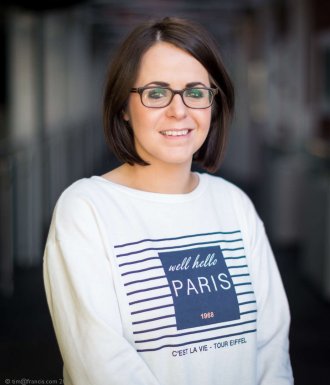
Eimhear O’Neill is an Irish filmmaker who won the Best Short Documentary award at the 2014 Galway Film Fleadh for co-directing and co-producing ‘Inez: A Challenging Woman’, a film exploring the life of civil rights and trade union activist Inez McCormack. She was associate producer on the Oscar-shortlisted and Emmy-winning Alex Gibney documentary, Mea Maxima Culpa: Silence in the House of God (2012) for HBO and she also directed ‘The Joy of Sets’ for BBC One Northern Ireland, which was selected for Sheffield Doc/Fest’s 2014 Videotheque. She is currently co-producing a feature documentary directed by Alex Gibney and produced by Trevor Birney, and is also directing her first feature documentary for Trevor Birney’s Fine Point Films and Abigail Disney’s Fork Films, telling the story of the world’s first all-female elected political party: the Northern Ireland Women’s Coalition.
Eimhear on challenges for LGBT film and filmmakers
First, it’s important to reference that the landscape does not exist to make the films we want to tell. In my opinion, that statement is as true for all filmmakers as it is for LGBT filmmakers. The market and broadcasters create the benchmarks – and we try to create ideas within them. As a result, our expressions in film are less meaningful than they could be from the point of conception and development. Why do we want to be filmmakers? To tell stories that reflects our lives. Often our ideas are exactly about our lives – and very often we are told they are not universal enough. Or too niche. It’s a challenge for LGBT films and filmmakers to convince the ‘money people’ that our stories are indeed universal to get financing.
It’s also a challenge for LGBT films and filmmakers to make stories that are largely about woman. “I like it but where are the men?” The indifference to gender is a hot topic, of course, but if we are ignoring almost half of the population, we need to ask: what impact is this having on our films on screen and off screen? It’s extremely important that we, as a younger generation of filmmakers, see older filmmakers achieving their vision. Personally, there is no greater inspiration than older women, especially LGBT-identified female filmmakers, being respected and visible in their craft. I know there can be a crippling effect when it comes to taking a risk on a younger, female director but when we see others doing it, we believe we can too. Mentorship and visibility is key and we don’t have enough of it.
Eimhear on an admired filmmaker
Sheila Nevins, television producer and president of HBO Documentary Films. Not only is she a self-confessed “great believer in the anonymity of the documentary subject”, but she also finances sensitive and ‘niche’ documentary subjects when others do not. Within the LGBT genre, she is behind The Case against 8, one of the best-edited and most powerful documentaries I’ve ever watched exploring the fight for equal marriage in California. In the last year alone, she helped finance Kurt Cobain: Montage of Heck (2015) and The Jinx – both genre-defining documentaries that immerse an audience in cinema. I admire her most because she has enabled a generation of filmmakers to tell stories that, in part, reflect my life. And, in part, help me as a filmmaker and a lesbian, feel prouder to keep fighting to tell our stories.
Eimhear’s mentor: Beadie Finzi
Siri Rødnes, writer-director
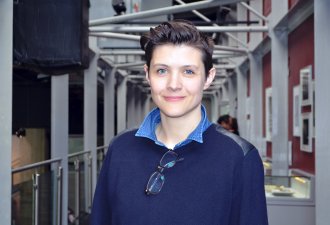
Siri Rødnes (b. Edinburgh, 1983) is a director and writer with proclivities towards genre. Her recent short films include ‘Take Your Partners’ (Berlinale, TIFF Kids, BFI Flare: London LGBT Film Festival), and the Creative Scotland-commissioned ‘Grimm Street’. Also completed in 2015 was ‘Asking For It’, released online in co-ordination with the International Day for the Elimination of Violence against Women. She is currently developing her debut feature, Nine Lives, with Gavin Humphries at Quark Films, co-written by Tom Basden and adapted from the science-fiction short story by Ursula K. Le Guin. She is also writing an original feature screenplay based on ‘Take Your Partners’, with support from Creative Scotland and the Scottish Filmmakers Talent Network. She has an MA in directing fiction from the National Film and Television School, and has participated in the Berlinale Talent Campus, Edinburgh International Film Festival and Reykjavik International Film Festival Talent Labs.
Siri on challenges for LGBT film and filmmakers
Recognising that on a mass scale young people do not identify with, or necessarily share, our narrow gender definitions. When making ‘Take Your Partners’ I realised that, although the film holds a powerful message for an audience of children, it is perhaps a more useful perspective for adults to experience as it is they who are rooted in the past. The next generation are already spinning their own gender narratives out in the open in the mainstream, as opposed to how I grew up in the closet. Many young people in the UK identify as non-binary sexually… Imagine a world where more and more of us are openly queer! That world is already emerging and I think it is our responsibility as artists to explore and encourage it. Which leads to another challenge: moving queer cinema beyond the coming out story. Although undeniably important to continue to tell all of our stories, coming out will be less of a concern among future peer groups, so the traditional lonely coming out narrative will hopefully diminish in frequency and relevance. I think this will open up an exciting space for different kinds of queer-inclusive narrative to evolve and integrate. Personally I love sci-fi and believe queer needs to be visible in more than just ‘queer cinema’. This is also relevant when we consider our future audience. Traditionally, queer cinema is a niche genre with a niche audience, but if more and more people identify as queer in some way, then they are going to want stories and characters that reflect them and their desires. That’s a pretty big market share!
Siri on an admired filmmaker
Being a big genre fan, I could name many legendary directors whose work has influenced me over the years, but none completely consistently throughout their careers. But with a box office saturated in formulaic blockbusters, superhero reboots and arbitrary horror movies, I really appreciate it when films like Robert Egger’s The Witch (2015) and Duncan Jones’ Moon (2008) land on the big screen, giving depth and meaning to genre again. That said, I still draw a lot of inspiration from the likes of Alien (1979), Jurassic Park (1993) and Terminator 2: Judgment Day (1991), with Pan’s Labyrinth (2006) and Children of Men (2006) also featuring highly.
Siri’s mentor: Andrew Macdonald
-
BFI Flare: London LGBTIQ+ Film Festival
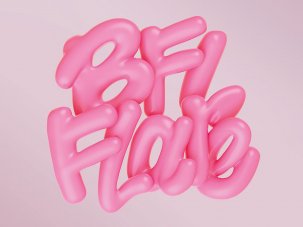
The best new and classic LGBTIQ+ films from around the world.



